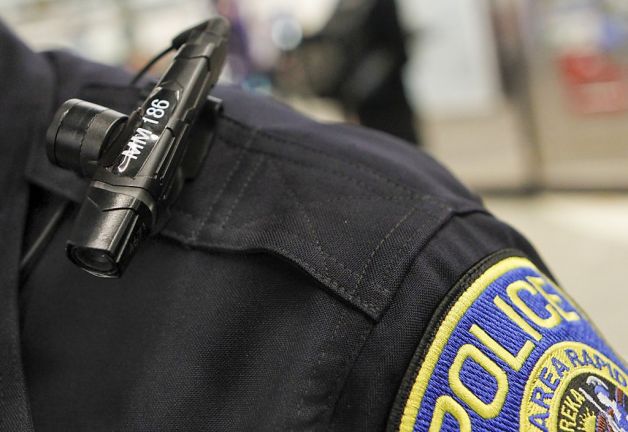The plan for body cameras was brought to the table after it was reveled that Baltimore City paid out approximately $6 million in recent settlements in 102 police brutality cases. Fueled by recent police-involved shootings, like the one in Ferguson, Missouri, police departments around the country have been put under a microscope of public scrutiny.
So, the big questions: Are body cameras the answer? Will they cause a dramatic decrease in police brutality cases? And, perhaps most importantly, will they promote the overdue healing process between the police and their communities?
 I've asked a few law enforcement folks how they feel about wearing a body camera. Putting it mildly, they all had unfavorable opinions on it. They view it as just another obstacle that will impede their ability to do their job. I can see why they might object to this new policy. The public defenders will likely pick apart every word on the video recording of every arrest, essentially putting the officer on trial.
I've asked a few law enforcement folks how they feel about wearing a body camera. Putting it mildly, they all had unfavorable opinions on it. They view it as just another obstacle that will impede their ability to do their job. I can see why they might object to this new policy. The public defenders will likely pick apart every word on the video recording of every arrest, essentially putting the officer on trial.However, on the other side, it seems that a video of an arrest would greatly contribute to the getting to the "real story". In many of those so-called brutality claims, a video could actually help the police justify his or her actions. For instance, it be a lot tougher for a street thug to cry police brutality if a video shows him resisting arrest and/or assaulting a cop.
As expected, no plan comes without potential problems. The first problem is the cost of outfitting an entire police department with the cameras. Initially, there will be a 6-month pilot program in which 100 patrol officers will wear the cameras. These cops will be in districts with highest call volumes. If all goes relatively well, the cameras will find their way to the rest of the force. The estimated cost for the first year is between $5.5 and 7.9 million.*
Additional costs will likely come from the retention/storage of the camera data. A 16-member task force, appointed by Mayor Rawlings-Blake, has initially recommended that the data be retained for four years. As with any large data-retention activity, there are often substantial costs associated with infrastructure, administration and maintenance.
Aside from the costs, there is also a privacy issue with the cameras. This will have the potential to open up a whole other can of worms. Initially, the responding officer is supposed to alert the "person of interest" that the camera is rolling. At that time, the person can request that that the camera be turned off. While the officer is supposed to abide to that request, should there be a subsequent enforcement activity with that person, the cop is supposed to turn the camera back on. Suppose, when the camera comes back to life, a pop-knot magically appears on the suspect's head. It's now back to the cops word vs. the suspect. And, of course, there will likely be speculation on how, when and why the camera was initially turned off. Yeah, it can get a little complicated....
There's no telling how this will all pan out. Will the wood shampoo become a thing of the past? Will suspects possibly be a little more friendly and compliant with police officers? Who knows? But whatever the case, it looks like the cameras are definitely on their way to Baltimore.
kw
* http://www.baltimoresun.com/news/maryland/sun-investigates/bs-md-sun-investigates-cameras-20150221-story.html


No comments:
Post a Comment